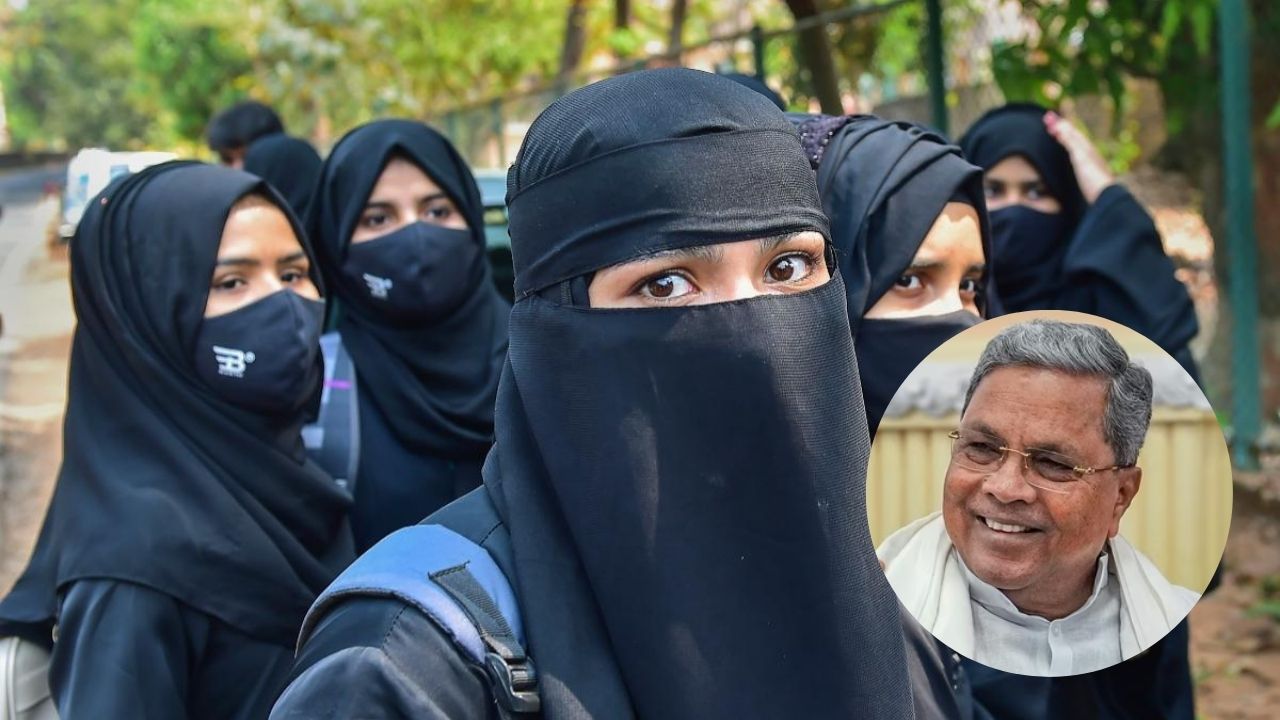In a significant announcement, Karnataka Chief Minister Siddaramaiah declared the withdrawal of the hijab ban in educational institutions, overturning a policy instituted by the previous BJP government. The move comes after a prolonged controversy that began in January last year when six students in Udupi were allegedly denied entry to a government college for wearing hijabs. The subsequent legal battles and political reactions have stirred debates on secularism, religious freedom, and the role of the government in regulating attire in educational spaces.
The hijab controversy emerged in January last year when six Muslim students faced restrictions on wearing hijabs at the Government Pre-University College in Udupi. The issue escalated, leading to protests by Muslim girls and counter-protests by Hindu students wearing saffron shawls in solidarity. The Karnataka High Court, on March 15, 2022, ruled that wearing the hijab was not mandatory in Islam and upheld the ban imposed by the BJP government. The Supreme Court later split its verdict on the matter, with a larger bench scheduled to review it.
In a recent public announcement, Chief Minister Siddaramaiah stated that his government would revoke the hijab ban, emphasizing personal freedom in matters of clothing and diet. He argued that individuals should have the right to choose what they wear and eat, drawing attention to his own choice of wearing a dhoti. The decision has sparked a debate on the secular nature of educational institutions and the potential impact on fostering an inclusive learning environment.
The announcement by Siddaramaiah has not been without its share of political reactions. State BJP Chief Vijayendra Yediyurappa expressed concerns about the secular character of educational spaces. He argued that allowing religious attire in schools could divide young minds along religious lines, hindering an inclusive learning environment. Yediyurappa’s statement raises questions about the intersection of politics, education, and religious freedom in the state.
In response to criticism, Chief Minister Siddaramaiah accused the BJP of dividing society based on clothing, dress, and caste. He asserted that the BJP’s slogan of “Sabka Saath Sabka Vikas” (Development for All) was hypocritical and alleged that the party was fostering divisions for political gain. Siddaramaiah’s critique reflects broader concerns about the role of identity politics and religious considerations in shaping governance and policy decisions.
The BJP, in response, accused Siddaramaiah of sowing the “poison of religion” in the state. They argue that a uniform policy on attire in schools and colleges promotes equality among students and prevents divisions based on clothing. The BJP’s stance aligns with the idea of a common dress code to ensure uniformity and avoid potential discrimination among students.
The hijab controversy in Karnataka has not only fueled political debates but has also stirred public sentiment. The decision to withdraw the ban is seen by some as a victory for individual freedom, while others express concerns about the potential impact on the uniformity of educational institutions.
Looking ahead, the controversy may influence the larger discourse on secularism, religious freedom, and the role of the state in regulating personal choices. The Supreme Court’s upcoming review of the hijab ban issue will likely play a crucial role in shaping the legal and policy landscape surrounding religious attire in educational institutions.
The hijab controversy in Karnataka reflects the complex interplay of politics, religion, and personal freedom. Chief Minister Siddaramaiah’s decision to reverse the hijab ban has ignited discussions on the secular nature of educational institutions and the need for a balanced approach that respects individual choices while maintaining a sense of equality and uniformity. As the issue continues to unfold, it underscores the challenges faced by policymakers in navigating the delicate balance between religious freedom and the maintenance of a cohesive and inclusive educational environment.

